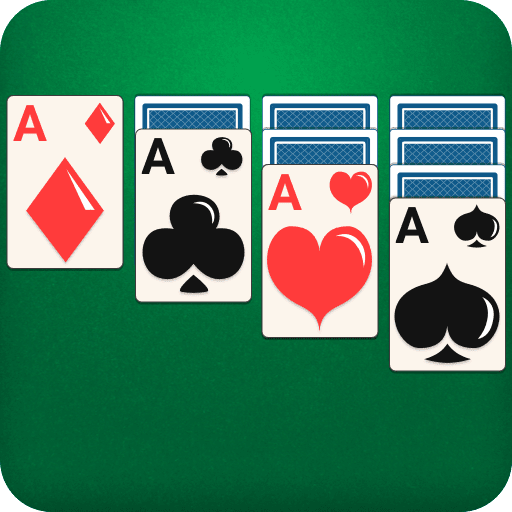Are card games good for your brain?

Card games are undoubtedly a great pastime that has been appreciated for centuries. Not only are they fun, but there are so many types of these games that everyone can find at least one suitable to their taste. Better even, there is more to these games than what meets the eye. Card games are good for your brain too!
Although there is a wide variety of types of card games, they all share traits that can help boost the brain’s cognitive functions, prevent mental illnesses, and promote a healthier mind overall.
Protect the brain by reducing stress
By now it is common knowledge that stress can negatively affect the body’s overall well-being. It is thus with no surprise that it can also have permanent negative effects on the brain too.
Several scientific studies have now confirmed that chronic stress kills brain cells. The most affected area is the hippocampus, a brain area associated with learning, memory, and emotions.
Therefore, card games are good for your brain because they help reduce stress and, thus, avoid these negative effects.
Although they are challenging, these games have a soothing quality to them. Players use their brains because they want to and because they draw pleasure from winning. It is not a task forced on them.
Additionally, because players must focus on the game, it shifts their attention away from stress factors. While enjoying a card game and interacting with other players, they can put any anxieties or stress-inducing problems on hold in their minds. Even if the problems do not go away on their own, this little break can be enough to let the mind clear out and help it gain a new perspective over the issue at hand.
Improve mental wellness through socialization
Loneliness can trigger or be triggered by depression and anxiety and other forms of mental illness. In this sense, isolated or introverted people may find in card games an easy-going and fun vehicle to create new social connections and interact with others.
The game gives them a common topic of interest that encourages conversation and teamwork. It may also promote a healthy sense of friendly competition which, in turn, motivates the players to cultivate these interactions.
As a plus, socialization also reinforces the power of card games to fight back stress, by reducing the feeling of isolation, promoting a positive perspective in life, and shifting attention to the interaction with others.
Enhance brain cognitive functions
Card games are good for your brain and its cognitive skills in more than one way. While enjoying this pastime or hobby, you are actively using and training several important mental skills at the same time. So much so, that playing card games is even considered a good method to increase your IQ.
Some of the skills used in card games include:
Reasoning skills - Most card games require at least some level of strategy. You must be able to analyze the cards, plan a course of action, predict possible outcomes and gains, and even decide when it is more profitable to make a move or wait. Even if all these mental processes happen without you being consciously aware of them, you are effectively training your brain’s reasoning skills and promoting the development of this organ.
Mathematical skills - Both single-player and social card games train your brain’s mathematical skills, although you might not perceive it. While defining a strategy to win, you are calculating odds and probabilities. Even if you are not able to translate them into a number or percentage, you are unconsciously reading the information and the unknowns on the board and calculating your chances of success. Games such as the Pyramid may even require that you actively do the math to match the cards.
Memory - Card games train and enhance your memory in various ways while engaging and improving other cognitive skills in the process. Right from the start, you must understand and remember the rules to be able to play. To plan a strategy and calculate the odds and probabilities, you must also recall which cards have been played and, in some cases, who has played each card. Some specific card games, such as Fishing, may also require that you remember the placement of cards after seeing them only once.
Concentration - It is not easy to focus on something and mentally cut off any distractions. Especially nowadays, with our phones, the internet, TVs, and a great other variety of gadgets that seem to demand our attention all the time. Nevertheless, card games can help easily train this skill, because your brain is set on trying to get a reward: the pleasure of winning. You must focus to properly memorize, reason, and plan a strategy to achieve victory. The more you train your brain, the easier it will be to concentrate on any issue, even in your daily life.
Note that all these skills are intertwined. You need to concentrate to use memory, you need memory to use your reasoning skills and you need reasoning skills to use math. Indeed, it is because of these connections that card games are good for your brain. You can train them and develop them in equal measure without even realizing you are doing it.
Support learning and brain development
Learning produces physical changes in the brain. It strengthens the synaptic connections between neurons in gray matter, increases the density of the myelin (thus promoting optimal information transmission through the brain), and induces many other alterations that result in a stronger brain and more developed mental capabilities.
On the surface, learning how to play a game and its dynamics is already beneficial. However, there are several types of card games that are designed to be educational. Matching card games are a good example of such.
These are frequently played by kids to learn new vocabulary (e.g., matching a word with a definition or image) and to relate different terms (e.g., matching a dog with a doghouse, a fruit with a tree, etc.). Educational card games for all ages also exist. A curious example is the uta-garuta, a Japanese card game that features an anthology of one hundred Japanese waka poems and in which the players must match the cards to complete each poem as quickly as possible.
As you can see, playing card games is good for your brain and even for your overall well-being. The next time someone admonishes you for spending too much time playing cards, you can argue back saying that you are in fact working on your mental growth and brainpower!


